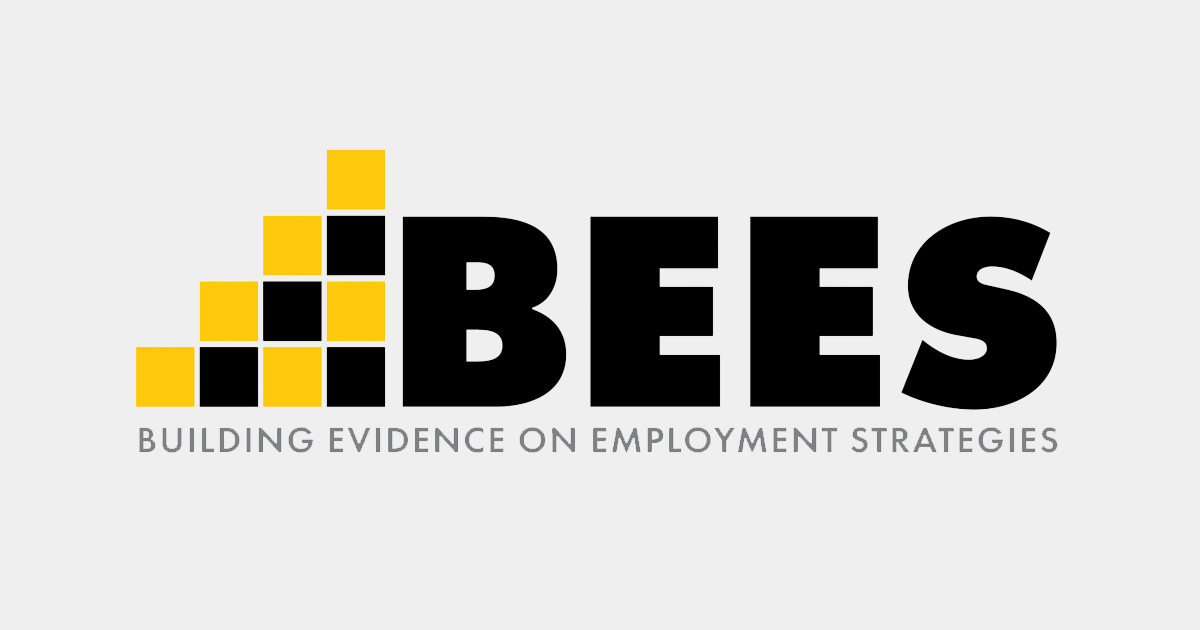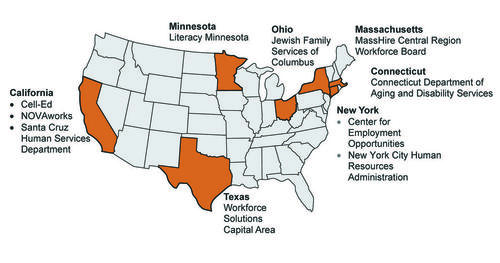Lessons from Addiction Recovery Care
Building Evidence on Employment Strategies (BEES)

Overview
The Building Evidence on Employment Strategies (BEES) Project is evaluating innovative programs designed to boost employment and earnings among Americans with low incomes. It builds on previous research on the effectiveness of various employment strategies that serve a range of populations, including individuals diagnosed with substance use disorders, those with a mental health diagnosis, and recipients of TANF or SNAP benefits, among others. BEES evaluations include researching the application of tried-and-tested employment services like Individualized Placement and Support (IPS) to new, under-researched populations.
BEES is part of the Office of Planning, Research, and Evaluation (OPRE)’s Innovative Strategies for Addressing Employment Barriers Portfolio, which is rigorously evaluating the next generation of employment strategies for people with low incomes. The project has partnered with the Social Security Administration to evaluate employment-related programs for individuals who may apply for Supplemental Security Income (SSI). Ultimately, the goal of the project is to strengthen the understanding of evidence-supported programs that are effective in improving employment and economic security. The project is funded by OPRE within the Administration for Children and Families (ACF) at the U.S. Department of Health and Human Services. The project is being conducted by MDRC, a nonprofit, nonpartisan research organization, in partnership with Abt Global and MEF Associates.
Additional Project Details
Agenda, Scope, and Goals
BEES is working to bolster the knowledge base regarding employment-focused interventions for individuals with barriers to employment, including those diagnosed with mental health and substance use disorders. It is studying interventions designed to promote employment and economic security.
The programs in the BEES Project are largely operated by states, counties, and private community-based organizations.
Design, Sites, and Data Sources
The many studies that fall under the BEES project each include an implementation and/or impact analysis. The implementation analysis documents how a program operates on the ground, how managers and staff members address operational challenges, and how much of a particular service participants receive. The impact analysis assesses the extent to which the program improves participants’ outcomes, including their employment rates and earnings. Administrative records and surveys are being used to track these outcomes, and program impacts will be measured using a random assignment research design when possible. As its name suggests, random assignment involves assigning participants at random to have access to the intervention being evaluated, or to seek an alternative intervention. It is the most rigorous method appropriate for evaluating programs. These random assignment studies include a cost analysis as well, to inform funding decisions by policymakers and program administrators.
Approved BEES studies
- 2Gen-Chicago, Illinois
- Addiction Recovery Center, Kentucky
- Breaking Barriers San Diego, California
- Central City Concern, Oregon
- Descriptive Study of Substance Use Disorder Programs
- Avivo, Minnesota
- IKRON Corporation, Ohio
- Access to Recovery (ATR), Massachusetts
- Community Recovery Program, Virginia
- Women in Recovery, Oklahoma
- Descriptive Study of the Journey Program
- Individual Placement and Support (IPS) in a Federally Qualified Health Center (FQHC) Setting
- Harbor Homes, Inc., New Hampshire
- Impact Behavioral Health Partners with PCC Community Wellness, Illinois
- University of North Carolina at Chapel Hill with Lincoln Community Health Center, North Carolina
- Individual Placement and Support (IPS) in a Substance Use Disorder (SUD) Treatment Provider Setting
- Zepf Center, Ohio
- Grand ARC, Oklahoma
- Impact Behavioral Health Partners with Lutheran Social Services of Illinois, Illinois
- Individual Placement and Support (IPS) in a TANF-SNAP Provider Setting
- Compass Career Solutions, Washington state
- Core Health, Washington state
- Impact Behavioral Health Partners, Illinois
- Sunrise Services, Washington state
- Orlando Serve, Florida
Featured Work
Workforce Programs Combine Virtual and In-Person Strategies








